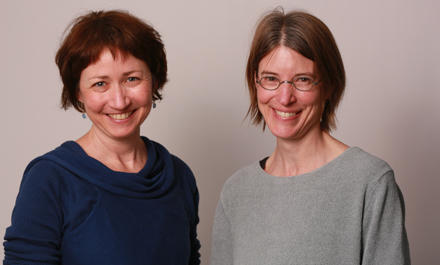Six professor pairs received a Reveley Interdisciplinary Fellows grant to design and teach an interdisciplinary class. The grant is funded through the Andrew W. Mellon Foundation and named for College of William and Mary President Taylor Reveley.
Recipient pairs will have a year to research and design a class that draws from two subject areas. The classes will be influenced by each professor’s department. These will all be COLL 200 classes and will be taught for the following two years.
English and linguistics professor Daniel Parker and government professor Maurits Van Der Veen are producing a class that will use online tools to study big data.
Parker pointed out that in today’s world it is necessary to interact with people from different backgrounds and explain work to a wider audience. Through his class, he hopes that students will gain the tools necessary to create better-informed analyses and to answer a wider variety of questions from his class. One student who has begun conducting research is looking at when people begin casually using a trademark by analyzing how people use trademarked terms on Facebook and Twitter.
Modern languages professor Silvia Tandeciarz and history professor Betsy Konefal are teaching a class about Argentina’s last military dictatorship and Guatemala’s internal armed conflict from 1960 to 1996. Tandeciarz said she and Konefel will bring their areas of expertise together to look at how people remember past state violence. For example, class participants will talk to students in Argentina and Guatemala about those events.
Environmental science lecturer Dorothy Ibes and film and media studies lecturer Tanya Stadelmann are creating a class that will teach students about making environmental science documentaries. Stadelmann said that the class will examine the tension between presenting scientific and humanistic elements in an environmental science documentary. Students will have the opportunity to conduct research outside of the classroom and will produce a documentary on ecotherapy, the topic of Ibes’s research.
Stadelmann said that she struggled to understand the data when she was working on her first film, and she now is appreciative of those who helped her.
“I couldn’t understand the data, they couldn’t understand the data, so I needed to get a scientist to interpret it,” Stadelmann said. “They were very helpful in helping me understand what I was dealing with. I learned so much from it because I come from a more artistic film [background] and dealing with people who come from a hard science background is like two different ways of looking at a situation. It was interesting for them as well.”
Religious studies professor Annie Blazer and government professor Jamie Settle are creating a class researching how people signal their political ideologies through their non-political preferences.
“Liberals and conservatives have all these differences in the art they prefer and the beer they drink and the way they keep their desks organized,” Settle said. “It is not perfectly predictive. There are conservatives who love abstract art and liberals who prefer to drink Coors. On average, there are these differences. I got interested in how we know these things … That is how I arrived at it in terms of the social implications of our political views.”
Liberals and conservatives have all these differences in the art they prefer and the beer they drink and the way they keep their desks organized,” Settle said.
The two professors are putting together a survey, and students will be involved in collecting data and conducting a statistical analysis of the survey. In the humanities section of the class, students will learn from how culture is portrayed in movies and look at ethnographic studies.
According to Settle, there are many benefits to looking at issues through the lenses of different disciplines. Settle stated that she hopes to make statistical analysis more approachable to those who are intimidated by ensuring students are interested in the topics. She also said she hopes that students will gain self-awareness through their observations.
English professor M. Lee Alexander and mathematics professor Ryan Vinroot will create a class looking at the use of mathematical ideas in literature.
Modern languages professor John Riofrio and secondary education professor Jeremy Stoddard will create a class discussing diversity issues at the College and outside of the College. Students will get the opportunity to think about how race is socially constructed and how this affects schools.
Similarly, Tandeciarz stated that she hopes students will gain a greater understanding of global problems and how different communities address these problems.
“I hope we will see more,” Tandeciarz said. “I am convinced that interdisciplinary is key to creative thinking and cutting edge practices. I think that two minds are always better than one and I think that collaboration can bring about the best work in people and make visible things that we don’t commonly think about. I hope we will find ways to make more of these collaborations possible.”
I am convinced that interdisciplinary is key to creative thinking and cutting edge practices,” Tandeciarz said.


[…] Terry McAuliffe, will require public institutions of higher education to count credit for American Sign Language courses toward completion of the foreign language entrance, placement and credit requirements. This […]